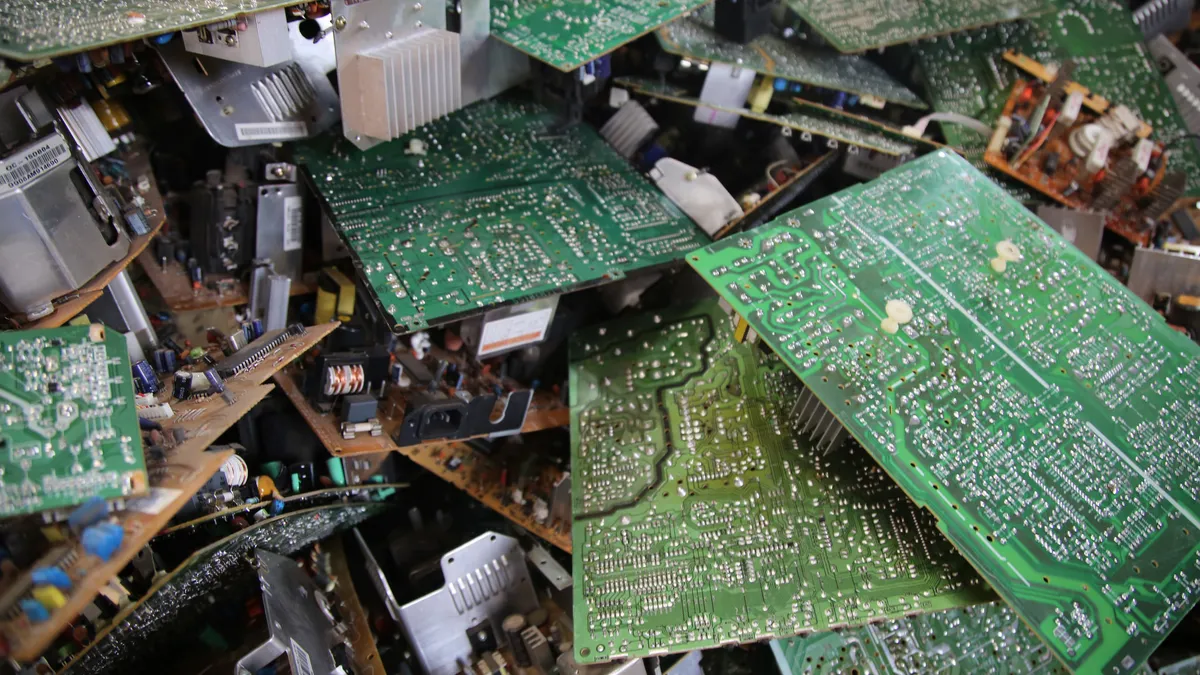UPDATE: Oct. 16, 2018: Thailand will now officially ban all scrap plastic imports by 2021, according to the Financial Times. The country has said it needs this transition period to build domestic processing infrastructure and also honor existing import licenses that run until 2021. As for e-scrap, which has been a particular concern due to environmental effects from illegal operations, the government plans to phase out imports "from now, without a grace period."
Dive Brief:
- Thailand will ban more than 400 types of electronic scrap (e-scrap) imports within the next six months, according to The Nation. Government officials say they will impose regulations for environmental purposes due to reports of massive heaps of scrap piling up within the country.
- The government also will ban all types of plastic scrap imports over the course of the next two years.
- Thailand had temporarily stopped plastic and e-scrap imports in June and had promised permanent measures were in the works.
Dive Insight:
News of Thailand's ban comes just weeks after Vietnam stopped issuing licenses for scrap imports and Malaysia revoked licenses for 114 of the country's scrap processors. All of those countries and others in Southeast Asia fear becoming the world's dumping ground for waste and recyclable materials following China's scrap ban and tightened contamination standards.
Thailand's e-scrap regulations will cover a huge swath of items — including circuit boards as well as old TV and radio parts — and the environmental minister says a full list will be available soon. Certain household and commercial appliances — such as office copiers — will be exempt from the regulations if the items can be repaired and reused.
Scrap metals including aluminum, copper and steel still will be accepted, but the materials must be separated and cleaned before shipment to Thailand.
The country's leaders are particularly concerned about e-scrap because of the potentially harmful elements in many electronics such as cadmium, mercury and lead. In addition to the harm exposure to such materials can cause to people handling them, the materials also can leach into the environment. Plus, some processors are not as advanced in their operating techniques which increases pollution, and there have been reports of illegal hazardous material disposal.
The environmental concerns have prompted Thai officials to beef up processing facility inspections this year and even to perform raids. Inspectors particularly search for scrap businesses illegally importing banned items.
Although much of the ban news focuses on the short-term push for e-scrap regulations, the plastics sector will be affected as well. The details of the plastic ban are not yet as clear other than the fact that it will cover all polymers.
It is not surprising Thai government officials are targeting plastic in their environmental improvements because the country is said to be one of the greatest contributors to ocean plastic pollution. Plus, a large portion of China's recent regulatory measures dealt with plastics, so those materials have been funneled to other countries to a greater degree than other commodities.















